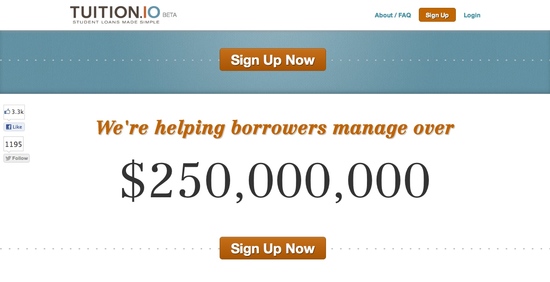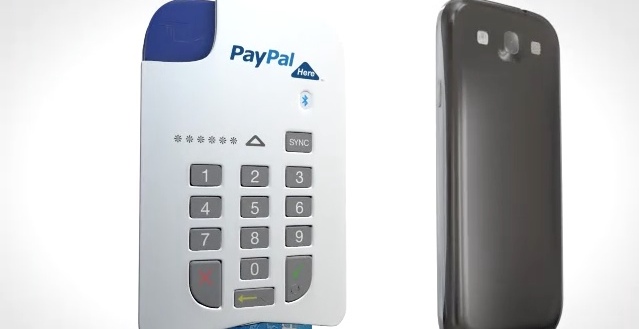 Looking for the best in fintech innovation? According to American Banker, there’s a Finovate alum (or three) for that.
Looking for the best in fintech innovation? According to American Banker, there’s a Finovate alum (or three) for that.
![]()

Finovate is part of the Informa Connect Division of Informa PLC
This site is operated by a business or businesses owned by Informa PLC and all copyright resides with them. Informa PLC's registered office is 5 Howick Place, London SW1P 1WG. Registered in England and Wales. Number 8860726.
 Looking for the best in fintech innovation? According to American Banker, there’s a Finovate alum (or three) for that.
Looking for the best in fintech innovation? According to American Banker, there’s a Finovate alum (or three) for that.
![]()

 Metaforic’s self-defending software immune system named the Gold winner by Info Security Products Guide’s 2013 Global Excellence Awards.
Metaforic’s self-defending software immune system named the Gold winner by Info Security Products Guide’s 2013 Global Excellence Awards. If you’ve ever worked in lending (or for a nonprofit), you know there’s always far more need than funds that are available. That is unlikely to change at a macro level. But that doesn’t mean we can’t reach tens of millions more by deploying capital more widely and more efficiently (and at a profit).
If you’ve ever worked in lending (or for a nonprofit), you know there’s always far more need than funds that are available. That is unlikely to change at a macro level. But that doesn’t mean we can’t reach tens of millions more by deploying capital more widely and more efficiently (and at a profit).
Enter crowdfunding, and the subset, P2P lending.
I’ve been a huge fan since it burst on the scene in 2006, authoring several reports (note 1) along with the only open letter in my life when the SEC squelched P2P in 2008/2009. I just could not believe that something with so much potential for good was curtailed while in its infancy.
But luckily, the tide is turning. Even though last year’s Jobs Act is being held up (by guess who again), I’m encouraged that our government is seeing the light, although I wish Washington would embrace P2P like the Brits have.
And despite onerous disclosure requirements, Lending Club is on fire (with a $1.4 billion run rate in Feb) and proving to investors, and industry observers, that crowdfunding works. For the sake of the nascent industry, let’s hope it doesn’t stumble.
![]() We are working on a new report on the space (note 1), but in advance of that, take a look at Pave (see below), one of hundreds of newcomers. Maybe I’m a just a sucker for the drama, but it absolutely gives me chills to see web-based investment/lending platforms helping to move deserving folk forward. It’s like a virtual credit union.
We are working on a new report on the space (note 1), but in advance of that, take a look at Pave (see below), one of hundreds of newcomers. Maybe I’m a just a sucker for the drama, but it absolutely gives me chills to see web-based investment/lending platforms helping to move deserving folk forward. It’s like a virtual credit union.
At Pave, backers pledge money to prospects and form a team. In return, backers receive a portion of the prospects’ future income. It’s like angel investing, but focused on careers. Pave is just getting started, with eight funded teams, but the stories are compelling and the future is bright, just as it is for the whole industry.
———————————————
Pave brings mentors/benefactors together with talented individuals needing support (28 Feb 2013)
Pave prospects
Pave backers
Pave teams
———————————–
Notes:
1. We have published three reports in this area (OBR 127 in 2006, 148/149 in 2007, and SR-5 in 2009). We are working on our fourth. It will focus more on equity and debt crowdfunding for small and mid-sized businesses. Our latest P2P lending market forecast is contained in the current Online Banking Report here (Jan 2013, subscription).

So now, with the recently announced update VCA 5.0, Online Resources is poised to do a few favors for the financial institutions and billers, as well.
Among the new features are:
VCA offers consumers privacy, intelligent automation, and a tailor-fit resolution when paying in full is impossible. The update comes as Online Resources is en route to becoming part of ACI Worldwide, courtesy of a $260 million dollar deal announced earlier this year.
Online Resources is one of 20 “Finovate charter alums,” having presented this very technology at the very first Finovate event in 2007.
 MasterCard to deploy Mobile PayPass technology in Brazil, the company’s first NFC payment project in Latin America.
MasterCard to deploy Mobile PayPass technology in Brazil, the company’s first NFC payment project in Latin America. Student loan management tool Tuition.io announced recently that it landed $1 million in seed funding from a large group of investors.
Some of the investors include:
This is the Santa Monica-based company’s first round of funding.

Tuition.io launched 6 months ago, and disclosed the following stats:
To learn more about Tuition.io, watch its FinovateFall 2012 demo.
 Coast Capital Savings Credit Union announced that it will go live with Temenos T24, deploying the new core banking system in a bid to better serve the company’s 450,000 daily transactions.
Coast Capital Savings Credit Union announced that it will go live with Temenos T24, deploying the new core banking system in a bid to better serve the company’s 450,000 daily transactions.
Temenos T24 is among the best-selling core banking software systems in the world over the past 14 years, according to IBS Intelligence. The software has been a perennial winner of Banking Technology magazine’s annual “Best Core Banking Product” Readers’ Choice Award.
The second largest credit union in Canada, Coast Capital Savings Credit Union has enjoyed asset base growth of more than 100% over the past ten years (now at more than $13 billion dollars as of the end of 2011). Credit union membership stands at 475,000, with more than 50 branches in the greater Vancouver area of British Columbia.
Temenos was among the companies to participate in FinovateEurope 2013 last month in London. Video of their presentation will be available soon.
Learn more about Temenos from our “Live Blog” post from their FinovateEurope demo here.
 appPicker reviews Pageonce – Money & Bills app.
appPicker reviews Pageonce – Money & Bills app.This post will be updated throughout the day as news and developments emerge. You can also follow all the alumni news headlines on the Finovate Twitter account.
 As I was researching yesterday’s post on PayPal’s “plastic wallet,” I attempted to sign up for the company’s Anywhere card. Surprisingly, you are unable to get one if you have a business designation on your PayPal account.
As I was researching yesterday’s post on PayPal’s “plastic wallet,” I attempted to sign up for the company’s Anywhere card. Surprisingly, you are unable to get one if you have a business designation on your PayPal account.
So, I signed up for a new PayPal personal account. The process has changed considerably since I last signed up, 13 years ago. One of the most interesting improvements is how it positions the Bill Me Later credit option.
After putting in my name, mail address, mobile number, email address and desired password in the first screen, I was instantly set up with a new PayPal account. At the top of the confirmation page (see below) was a prominent, “Use your account instantly.” Then, users are prompted to add their birth date and Social Security Number, and to agree to the terms.
This Bill Me Later add-on is not required to use PayPal. There is a small gray button in the lower right to defer the credit app. But the application is so seamless, and so painless, I bet most users complete it (note 1).
Bottom line: This could be an effective way for banks and credit unions to upsell overdraft credit lines or credit cards during the checking account opening process.
————————————————
Bill Me Later option presented during new PayPal (U.S.) account signup (22 Feb 2013)
———————————-
Note:
1. In my case, I left my computer for some time and my session timed out, so I lost the opportunity.
![]() Long a staple of alternative payment options in the U.S., PayPal will be making its British debut this summer.
Long a staple of alternative payment options in the U.S., PayPal will be making its British debut this summer.
PayPal Here includes a handheld, chip & PIN reading device. This will allow the company to take advantage of the swipe-free, chip & PIN dominated markets of the UK and Europe. The device will be made available to a few British merchants this spring before the official product launch later in the year.
So why did the PayPal cross the Atlantic? Here are a few clues worth keeping in mind:

Take a look at how PayPal Here will work for British merchants and their customers in this video.
With plans to expand beyond the UK to the continent (including, perhaps, to France, home country of PayPal president David Marcus, as noted by TechCrunch‘s Ingrid Lunden), PayPal Here is currently available in Canada, Australia, Hong Kong, and Japan.
PayPal last demoed for Finovate at FinovateEurope 2012. See its presentation here.

 PayPal has been working on enabling in-store payments for much of its corporate life. It launched a debit card in January 2001, less than 18 months after the company launched. The card was used to tap funds held in PayPal accounts.
PayPal has been working on enabling in-store payments for much of its corporate life. It launched a debit card in January 2001, less than 18 months after the company launched. The card was used to tap funds held in PayPal accounts.
Fast-forward 12 years. We are now entering the era of the digital wallet which features the ability to store multiple payment cards that can be changed manually or automatically at the point of sale. PayPal is well positioned here, since its core product has offered that capability for a dozen years.
It’s easy to see how PayPal becomes a major, if not dominant, mobile-payments player. But it’s still a few years before NFC (or whichever) handsets and POS terminals become mainstream (see our latest report for more info, note 1).
So what can the company do now to make more inroads at the point-of-sale?
Plenty, it turns out:
 payment from any bank account, debit card or credit card linked to the user’s PayPal account. Users can even change the routing of the charge later that same day.
payment from any bank account, debit card or credit card linked to the user’s PayPal account. Users can even change the routing of the charge later that same day. And, the big one, still in the planning stages:
Bottom line: PayPal, Google, Moven(bank), UMB (powered by Dynamics), Wallaby, and others aren’t waiting for NFC. It’s work-around time, at least in the United States. A promising tactic, at least for users, is the “plastic wallet,” a traditional mag-stripe card (MasterCard, Visa or Discover) for point-of-sale use. Then, like PayPal Anywhere, the user routes the transaction to an outside deposit account, or another card, pre-registered in the system (note 2).
—————————————–
Landing page for PayPal’s plastic wallet “PayPal Anywhere” (23 Feb 2013)
Pitch for in-store payments served after logging out
Landing page after clicking the “start” button above
———————————————-
Notes:
1. See our Online Banking Report on Digital Wallets (published Feb 2013, subscription).
2. The business model of the plastic wallet is a challenge. It could be workable if all transactions are routed directly to deposit accounts via ACH (aka “decoupled debit”). Also, advertising (Google Wallet) and/or interest charges (PayPal’s Bill Me Later) can prop up the P&L.